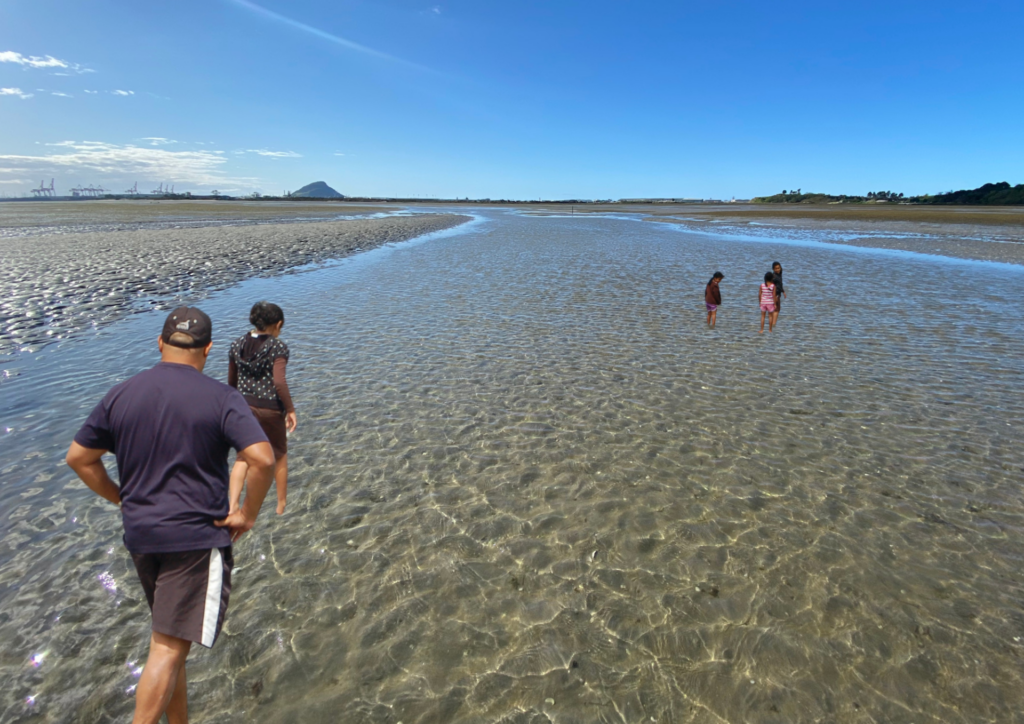- Vision Mātauranga
Research Programme
- Ngareta Timutimu
Ngai Tukairangi Hapū - Jack Thatcher
Kurawaka - View the full team
Project Leaders
-
Budget
$147,000 -
Duration
February 2022 – February 2023
-
Completed project
Hei Matapihi ki te Ao: Toi te Moana, Toi te Whenua, Toitū te Mokopuna
Intrinsic and effective climate leadership
This research project tapped into three sources of mātauranga to uncover our innate climate knowledge and climate leadership. We aimed to reignite the natural strengths and capability of our collective ahi kā to respond to the multiple threats Matapihi is facing as a result of climate change.

Matapihi is in a vulnerable geographical position, between the rising seas and ever-encroaching industry, infrastructure and housing development (often aided by local government policies). Climate change is causing an explosion of mangrove growth, as well as the erosion of significant tracts of our whenua (including whenua tapu). Year on year, these threats and pressures on Māori land and Māori communities are exacerbated. Hapū and iwi leaders are consistently tied up with responding to these pressures, and the opportunity to proactively plan, adapt and lead on climate change is denied us.
Genuine leadership on climate change is required nationally, regionally and locally. Our research focused on developing local climate leaders for the Matapihi community.
Matapihi is a rich and vibrant puna mātauranga. It has seen a major revival of our hoe waka and waka hourua. Our kaumātua were, and still are, great weavers and carvers. These skills have been passed on to our younger generations who are emerging as artists, poets and tā moko experts. We possess strong exponents of waiata, haka and mōteatea. Our research was grounded in this mātauranga, and so, of course, in te reo Māori and its revitalisation. It celebrated indigenous ways of knowing and being about our land and sea. We used our mātauranga to investigate and plan for climate change.
Our research sought to enable our community to focus on and keep focused on climate change. We aimed to develop a climate leadership programme that works with our intrinsic strengths and priorities. Our intergenerational approach was to empower ahi kā leaders who are confident to communicate about and take action to protect our whenua and moana, at different intersections.
Ranginui e tu iho nei, Papatūanuku e takoto ake nei
Kei waenganui ko ngā mea ora katoa
Tangaroa, Tāwhirimatea, Tānemahuta
Wānanga in place enabled us to:
- share and learn about our tribal landscapes and stories
- understand the science of climate change, including modelling
- understand the impacts of climate change on our landscapes
- understand local government as a barrier or enabler for our adaptation and leadership
- create a well-being plan for our communities, including to address climate anxiety
- create an adaptation strategy looking beyond 50 years
PROJECT TEAM
-
Ngareta Timutimu
Ngai Tukairangi Hapū -
Jack Thatcher
Kurawaka